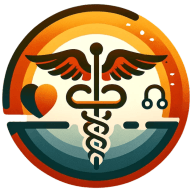How is Personalized Medicine Changing Patient Treatment?
Imagine a world where every patient receives a treatment plan tailored specifically to their genetic makeup. In this article, healthcare leaders share insights on how personalized medicine is revolutionizing patient care. Discover how customized cancer treatment with genetic testing stands at the forefront of this medical evolution, and learn about the potential to minimize side effects with targeted therapies. With a total of eight transformative insights, this discussion promises to broaden the understanding of the future of healthcare.
- Transform Patient Care with Personalized Medicine
- Customize Cancer Treatment with Genetic Testing
- Apply Precision Oncology for Better Outcomes
- Use Advanced Diagnostics for Precise Therapies
- Shift Strategies from Reactive to Proactive
- Empower Patients with Detailed Health Information
- Reduce Healthcare Costs with Effective Treatments
- Minimize Side Effects with Targeted Therapies
Transform Patient Care with Personalized Medicine
Personalized medicine is transforming patient care by allowing us to look beyond symptoms and address the unique genetic, environmental, and lifestyle factors that shape each individual's health. In functional medicine, this approach enables us to tailor treatments that not only target the root causes of illness but also promote long-term well-being. For example, with advanced genetic and metabolic testing, we can understand how a patient's body responds to specific nutrients or medications, leading to more effective, individualized care plans. This shift towards personalized care not only improves patient outcomes but also empowers individuals to actively participate in their health journey, making preventive care more achievable and sustainable.

Customize Cancer Treatment with Genetic Testing
Hello,
My name is Riken Shah, Founder & CEO of OSP Labs.
Personalized medicine has been a breakthrough in delivering individual patient care. Other than the traditional treatment methods, it can specifically customize treatment to individual characteristics. Personalized medicine creates precise treatment by leveraging genetic information, lifestyle, and other environmental factors. As a tech entrepreneur, I have guided various projects related to personalized medicine. Based on my experience, I am sharing my observations on how personalized medicine transforms patient treatment.
One of the remarkable contributions of personalized medicine is in treating cancer. It’s highly valuable for patients diagnosed with specific types of cancer, including breast, lung, and throat cancer. Genetic testing can help identify BRCA1 gene mutations. This mutation is widely known for increasing the risk of breast and ovarian cancer.
Another role of personalized medicine is the treatment of cardiovascular diseases. Personalized medicine can help patients with high cholesterol and a genetic history of cardiac diseases. Genetic profiling and lifestyle are useful in customizing statin therapy according to the patient’s needs.
Personalized medicine can be implemented using different methods like genetic testing, biomarkers, customized drug selection, and genetic predispositions. If we look at the benefits and outcomes of personalized medicine, there are a handful of transformations. Targeted therapies can improve health outcomes and reduce trial-and-error prescriptions. I will conclude my answer by appreciating healthcare providers’ increased adoption of personalized medicine.
Best regards,
Riken Shah
https://www.osplabs.com

Apply Precision Oncology for Better Outcomes
We can already see personalized medicine applied in various fields in medicine. One very relevant example is precision oncology (drugs specific for specific molecular markers in the tumor and specific genetic profile of the person). These drugs (immunotherapies or targeted therapies—inhibitors) extend the survival of patients by years, especially for popular cancer types like breast cancer or lung cancer.
Because these personalized drugs are more specific in their targeting mechanism, the side effects are much more tolerable than with general therapies (chemotherapy), dramatically improving the quality of life.

Use Advanced Diagnostics for Precise Therapies
Personalized medicine is changing patient treatment by using advanced diagnostics to pinpoint the best possible therapies for each individual. This approach means treatments are more precise, focusing on what will work best for each unique patient. As a result, there are fewer trial-and-error attempts and more successful outcomes.
This precision can lead to faster recoveries and better overall health. These benefits highlight the importance of embracing this personalized approach. Encourage healthcare providers to adopt personalized medicine techniques to improve patient care.
Shift Strategies from Reactive to Proactive
In the realm of patient treatment, personalized medicine shifts strategies from reactive to proactive. Instead of responding to illnesses after they appear, doctors can anticipate issues before they arise and act accordingly. This foresight helps in managing health problems early, thereby potentially preventing chronic conditions.
Being proactive also means patients experience less suffering and more effective recoveries. This transformation in medical approach could revolutionize how we think about healthcare. Urge medical professionals to adopt proactive treatment strategies for better health outcomes.
Empower Patients with Detailed Health Information
The impact of personalized medicine on patient treatment also lies in patient empowerment, enabling individuals to make well-informed health decisions. Armed with detailed genetic and diagnostic information, patients better understand their conditions and the options available to them. This knowledge cultivates a sense of control and involvement in their treatment processes.
Instead of passively receiving care, patients actively participate in selecting their treatments. This shift fosters better adherence to treatments and improved health outcomes. Encourage patients to stay informed and engaged in their healthcare decisions.
Reduce Healthcare Costs with Effective Treatments
A significant advantage of personalized medicine in patient treatment is the reduction in healthcare costs. By targeting the most effective treatments from the start, healthcare providers can avoid the expenses associated with ineffective drug trials and prolonged hospital stays. This efficient use of resources not only benefits individual patients but also alleviates the financial burden on the healthcare system.
Lower costs can also make advanced treatments more accessible to a broader population. This economic efficiency underscores the value of personalized treatments. Support the adoption of cost-effective healthcare practices to ensure sustainable medical care.
Minimize Side Effects with Targeted Therapies
Personalized medicine enhances patient treatment by targeting therapies to minimize side effects. By aligning treatments with the patient’s genetic profile, healthcare providers can reduce the likelihood of adverse reactions. This tailored approach ensures that patients receive medications and doses that their bodies can handle more effectively.
Fewer side effects mean that patients can stick to their treatment plans without unnecessary discomfort. Overall, this leads to better treatment adherence and improved recovery. Advocate for the use of personalized approaches to minimize treatment-related side effects.

